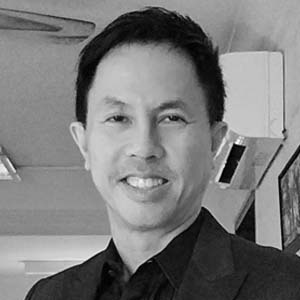
Kok Yeung* grew up in Singapore at a time when moral education, filial piety and religious studies were taught in schools.
To him, there was a clear sense of right and wrong, which produced narratives such as “Caring for your elderly parents is the right thing to do because they raised us, put us through school and now it’s our turn to return the favour”.
He grew up in a family of girls — three sisters — and a father who favoured the fairer sex.
When he was 25, Kok Yeung decided he would care for his elderly parents until the end.
Today, more than two decades later, Kok Yeung is divorced, single, and nowhere near or close to his siblings and his parents who are well into their 80s.
Advertisement
Only after some prodding does Kok Yeung share that he is coming out of depression after caregiving for his mother and facing an onslaught of family resistance.
His face is tense, his breathing is heavy, as he leans forward and says softly: “When an elderly parent falls ill in the family, the whole family falls ill too”.
Kok Yeung’s tale is not unlike many caregiver stories of exhaustion and sadness — but this is where the similarities end.
Kok Yeung’s painful unravelling and the source of his depression point to a larger picture of caregiver stress that is hardly discussed, yet contributes significantly to the caregiver’s wellbeing — unhealthy family dynamics.
Kok Yeung describes how he got scared and reacted badly after his mother started showing signs of dementia and forgot how to come home one Christmas night.
“I was traumatised seeing my mother degenerate to a person I didn’t recognise, but instead of receiving family support I felt persecuted,” he says.
He vividly recalls one particular family incident that made him start to suspect things were not right in the family.
“After finding mom the best doctors, the next thing I did was to get her to sign a will. I found the lawyer, prepared the paperwork and it was decided that three names including mine would be included in the document. By some divine intervention, the lawyer sent the documents back to me for verification and to my horror I found my name missing—it had been replaced with another sibling’s name.”
On another occasion, he returned home unannounced to visit his mother only to find the doors locked and the flat empty.
The neighbour told him that the family had gone on a staycation and asked why he didn’t join them. There were also family gatherings and birthday parties, which excluded him, and none of his siblings said a word.
“How could I not fall into depression?” Kok Yeung asks, forlornly. “It felt like my role as a caregiver and son was shredded to pieces by the very people I was caring for, to the point that I didn’t know who I was anymore.”
You won’t find stories like Kok Yeung’s openly discussed or played out in the mainstream media, but they are very much out there, privately shared in hushed tones.
Pro-family societies like Singapore dictate that we care for our parents because they first cared of us. There is a sense of duty, obligation and perhaps even the fear of guilt that drives caregiver behaviour, but it leaves no room for alternate narratives.
If we are exhausted then we should seek more help, self-care, get back on our feet and do it all over again — no questions asked.
But are such social compacts too restrictive and removed from reality? Are they even helpful at all in alleviating caregiver stress?
Consulting a therapist opened Kok Yeung’s eyes to how his caregiver reality is so much more than the relationship between himself and his mother, but encompasses the entire family, too, and how they relate and respond to each other.
These responses are a product of unique belief systems that stem from different lived experiences, which can be difficult, even traumatising. When left unprocessed, these experiences can develop into unhealthy family dynamics, or simply bad behaviour.
Unhealthy family dynamics can take the form of poor communications, harmful family alliances, parental favouritism, sibling rivalry and jealousy and bullying.
Kok Yeung’s father’s upbringing was troubling, punctuated by bullying and beatings from male figures that made his father develop an emotional armour of narcissism to keep himself safe, way into his adult life.
Sibling tensions can also arise from parents favouring one child over another, leading to jealousy, resentment and bullying.
Kok Yeung is not telling his story to get back at anyone. In fact, he admits he is not blameless, but he is telling his story to help other caregivers see a wider perspective of their stress.
Pro-family narratives paralyses the caregiver into guilt and self-blame, without considering the other family members’ responses to their own emotional baggage that they could be unconsciously carrying into the family space.
In my deep conversations with close friends, I’ve come to learn how all families have skeletons in their closets, but they remain shut in the name of saving “face” and family unity.
But all it takes is a family crisis to expose fault lines that were there all along. The sudden discovery of these fault lines combined with the stress of caregiving can easily push one over the edge.
If we are to better address caregiver stress, we need to take a holistic view of the family and pay attention to these fault lines and the dynamics that come into play — even unhealthy ones that make us squirm with discomfort.
The same way we are now normalising mental health by talking about depression, anxiety and self-harm, we need to do the same for caregiver stress, warts and all.
The costs are dear, if we don’t. Caregivers will not only experience exhaustion, but growing resentment towards their loved ones and guilt without knowing why, quickly spiralling into depression, anxiety and even suicide.
By then, saving face would be the least of anyone’s concerns.
*For the purposes of confidentiality, the name of Kok Yeung and some his identifiable characteristics have been changed, but his story remains real.






